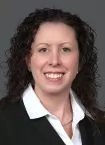One of the more prominent state regulatory trends in recent years is for states to adopt licensing requirements affecting investors, mortgage loan buyers, or other secondary mortgage market participants. Several states have amended their mortgage licensing laws, enacted new laws, adopted regulations, or issued guidance extending licensing requirements to persons that purchase and hold mortgage loans or, in some instances, the rights to service mortgage loans. This issue of Licensing Link discusses new legislation in Georgia and Oklahoma that may affect secondary mortgage market participants.
Georgia
Now that Governor Brian Kemp signed House Bill 474 into law on April 23, 2024, certain secondary market participants may enjoy some relief from the licensing or registration requirements of the Georgia Residential Mortgage Act. House Bill 474 amends the Georgia Residential Mortgage Act ("GRMA") to enact new exemptions from licensing for certain secondary mortgage market participants, and repeals provisions which required certain subsidiaries of bank holding companies to register with the Georgia Department of Banking and Finance.
The GRMA has broad effects on potential mortgage loan purchasers and secondary market participants, as it imposes a requirement to obtain a mortgage lender license on any person who (in relevant part) holds or purchases mortgage loans, or who holds the servicing rights to mortgage loans. Although the GRMA applies broadly to secondary mortgage market activity, it also contains several exemptions that have potential application to secondary market participants. For example, the GRMA exempts any person who purchases or holds closed loans for the purpose of securitizing the loans, on the condition that the person only holds the loans for seven or fewer days. The seven-day threshold can present challenges for secondary market participants, as it may not be feasible for a securitization to be completed within the seven-day timeframe provided by the limited exemption, and not all loans may be able to be securitized if the loans become delinquent or enter default prior to the purchaser being able to securitize the loans. House Bill 474 broadens this exemption timeframe to up to 14 days, so long as the loans are serviced by a Georgia-licensed or exempt mortgage servicer. House Bill 474 also adds a new exemption for certain trusts with a federally chartered bank trustee that acquires and holds mortgage loans. The amended GRMA contains an exemption for any trust with a federally or state-chartered bank that purchases or holds closed mortgage loans "for the sole purpose of securitization or otherwise transferring the loans into a secondary market," so long as the loans are serviced by a Georgia-licensed or exempt mortgage servicer. House Bill 474 provides that this exemption applies only so long as the trust does not commence foreclosure proceedings—either through the trustee of the trust or otherwise—on a mortgage loan held by the trust.
In addition to enacting new exemptions from licensing, House Bill 474 also amends the GRMA to repeal the requirement that wholly owned subsidiaries of bank holding companies that engage in business as a mortgage lender or mortgage broker register with the Georgia Department of Banking and Finance. Currently, these subsidiaries are exempt from licensing, but must register with the Department of Banking and Finance through the Nationwide Mortgage Licensing System registry.
House Bill 474's amendments to the GRMA become effective on July 1, 2024.
Oklahoma
With Oklahoma Governor Kevin Stitt signing Senate Bill 1492 into law on April 29, Oklahoma has added itself to the list of states that require a license to purchase and hold mortgage servicing rights. The Oklahoma Secure and Fair Enforcement of Mortgage Licensing Act ("SAFE Act") requires a license for an entity to act as a mortgage lender or mortgage broker in Oklahoma. Senate Bill 1492 amends the SAFE Act to include a person who "services" a residential mortgage loan within the definition of a "mortgage broker." The bill also amends the Oklahoma SAFE Act to include a new definition of "servicing" a mortgage loan. Under the amended Oklahoma SAFE Act, a person is deemed to be engaged in "servicing" a mortgage loan if it holds the servicing rights to a residential mortgage loan. "Servicing" also includes activities such as the collection of monthly mortgage payments, the administration of escrow accounts, the processing of borrower inquiries and requests, and default management. This prong of the definition essentially codifies previous guidance from the Oklahoma Department of Consumer Credit which set forth the types of borrower-facing activities that Oklahoma regulators consider to constitute servicing a mortgage loan.
While the Oklahoma SAFE Act already defined a "mortgage lender" to include a person that services residential mortgage loans, applicants for a mortgage lender license must either hold direct endorsement authority from the US Department of Housing and Urban Development, have Fannie Mae or Freddie Mac seller or servicer approvals, or be a Ginnie Mae approved issuer. As a result, it appears that secondary market MSR holders that do not hold federal agency approvals would need to apply for the mortgage broker license in order to purchase and hold mortgage servicing rights to Oklahoma loans.
The amended Oklahoma SAFE Act does not expressly distinguish between investors and persons who purchase whole loans with the servicing rights and investors who purchase servicing rights to loans held by third parties. Senate Bill 1492 does not amend the exemption provisions of the SAFE Act; the amended SAFE Act continues to exempt depository institutions, owned and controlled subsidiaries of depository institutions that are regulated by a federal banking agency, and Farm Credit Administration-regulated institutions from the entirety of the SAFE Act. The amended SAFE Act will take effect on November 1, 2024.
Visit us at mayerbrown.com
Mayer Brown is a global services provider comprising associated legal practices that are separate entities, including Mayer Brown LLP (Illinois, USA), Mayer Brown International LLP (England & Wales), Mayer Brown (a Hong Kong partnership) and Tauil & Chequer Advogados (a Brazilian law partnership) and non-legal service providers, which provide consultancy services (collectively, the "Mayer Brown Practices"). The Mayer Brown Practices are established in various jurisdictions and may be a legal person or a partnership. PK Wong & Nair LLC ("PKWN") is the constituent Singapore law practice of our licensed joint law venture in Singapore, Mayer Brown PK Wong & Nair Pte. Ltd. Details of the individual Mayer Brown Practices and PKWN can be found in the Legal Notices section of our website. "Mayer Brown" and the Mayer Brown logo are the trademarks of Mayer Brown.
© Copyright 2024. The Mayer Brown Practices. All rights reserved.
This Mayer Brown article provides information and comments on legal issues and developments of interest. The foregoing is not a comprehensive treatment of the subject matter covered and is not intended to provide legal advice. Readers should seek specific legal advice before taking any action with respect to the matters discussed herein.


